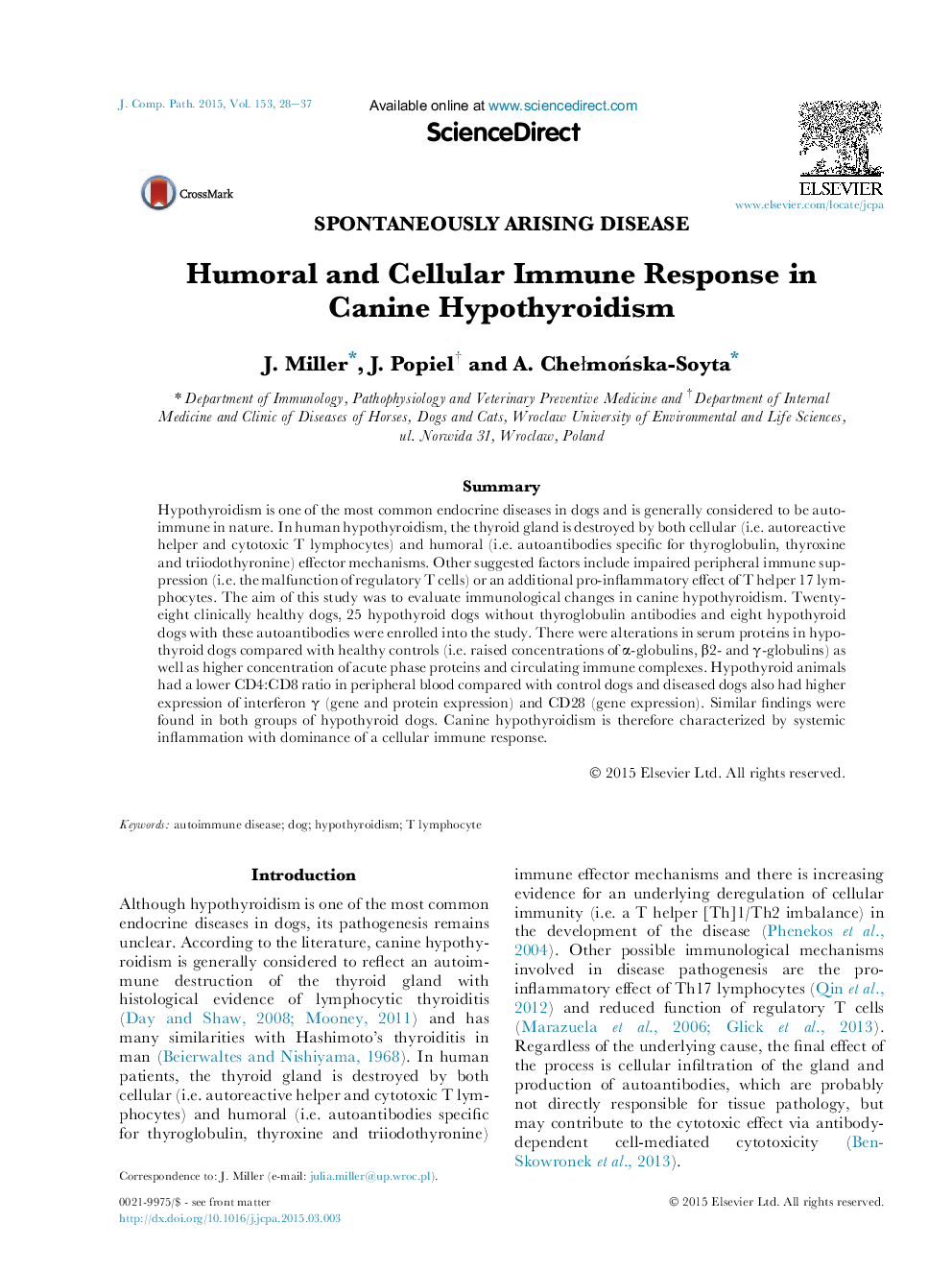| Article ID | Journal | Published Year | Pages | File Type |
|---|---|---|---|---|
| 2437196 | Journal of Comparative Pathology | 2015 | 10 Pages |
SummaryHypothyroidism is one of the most common endocrine diseases in dogs and is generally considered to be autoimmune in nature. In human hypothyroidism, the thyroid gland is destroyed by both cellular (i.e. autoreactive helper and cytotoxic T lymphocytes) and humoral (i.e. autoantibodies specific for thyroglobulin, thyroxine and triiodothyronine) effector mechanisms. Other suggested factors include impaired peripheral immune suppression (i.e. the malfunction of regulatory T cells) or an additional pro-inflammatory effect of T helper 17 lymphocytes. The aim of this study was to evaluate immunological changes in canine hypothyroidism. Twenty-eight clinically healthy dogs, 25 hypothyroid dogs without thyroglobulin antibodies and eight hypothyroid dogs with these autoantibodies were enrolled into the study. There were alterations in serum proteins in hypothyroid dogs compared with healthy controls (i.e. raised concentrations of α-globulins, β2- and γ-globulins) as well as higher concentration of acute phase proteins and circulating immune complexes. Hypothyroid animals had a lower CD4:CD8 ratio in peripheral blood compared with control dogs and diseased dogs also had higher expression of interferon γ (gene and protein expression) and CD28 (gene expression). Similar findings were found in both groups of hypothyroid dogs. Canine hypothyroidism is therefore characterized by systemic inflammation with dominance of a cellular immune response.
